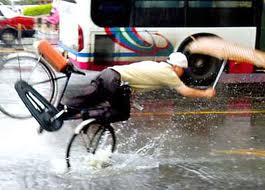This is a quote attributed to Ernestine Ulmer, an American writer born in 1925, that my middle child, a son, has lived by since his birth, though I suspect his sweet tooth has little to do with a philosophy of life, but is rather a life choice. What I really like about the quote though is the combination of a realization about life, followed by a radical shift in behavior. As importantly, from an operations perspective, is that the quote the neatly captures two really important concepts in planning, namely:
- How certain are we that the plan represents reality accurately?
- How will we behave when we know the plan is never accurate?
Life is Uncertain
Years ago, I had an on-going discussion with a colleague about the importance of uncertainty in any model. The topic was about how likely it was to achieve a plan generated by a model. Think of likelihood as a measure of the accuracy of a plan. It turns out that the likelihood is scarily small, and gets smaller as the time horizon expands. Correctly, my colleague said that people wanted certainty; they didn’t want to know that it is unlikely that they would ever achieve the plan they put in place. He is correct in that people don’t want to know this, but incorrect that they shouldn’t know this. They should know and develop different competencies and skills. We all need to plan. That the plan is not 100 percent accurate is not the problem. The fundamental problem is that we behave as if the plan is 100 percent correct. This is manifested in the fact that we even develop metrics such a ‘Plan Conformance’ or ‘Plan Adherence’, and measure our factories and supply chains as if these are attainable. How silly is that?! Einstein’s definition of insanity is Doing the same thing over and over again and expecting different results. If we know that the plan is never 100 percent correct, why behave as if it is? Why not also develop the competencies and skills to respond profitably and quickly to real conditions, which often don’t match what we anticipated through our planning process. I believe that ‘uncertainty’ is a more fundamental concept than ‘volatility’, in Operations in general, and in supply chain specifically. Clearly Ernestine Ulmer would argue that uncertainty is a fact of life. Industry/market trends such as demand volatility, globalization, escalating customer expectations, shortening product lifecycles etc… only serve to amplify the underlying uncertainty. But uncertainty was always there whether for demand, capacity, quality, supply, lead time, or any number of other factors that go into the models used to create plans for our companies. The most succinct way to capture the result of this uncertainty on these models is GEP Box’s quote that “Essentially, all models are wrong, but some are useful.” Uncertainty and the consequent model inaccuracy are themes I have been writing about for some time, including my latest blog and in terms such as “embrace volatility”, “embrace complexity”. Complexity and volatility only exacerbate the fact that the model is inaccurate and therefore the plan is inaccurate. Eat Dessert First If I were to define a tag line for Kinaxis, it would be “Plan, Monitor, Respond.” The importance of this line is the implied equal importance of these three competencies in
tandem. This is a very important shift to recognize the importance and value of being able to detect quickly when and where the plan does not intersect with real life, and then be able to respond quickly and profitably. It is not enough to develop world-class planning skills in isolation. We must develop the competencies and skills to reduce the time to detect that our plans will not be realized, and the competencies and skills to reduce the time to correct by demand or supply shaping, or by modifying our plan. This is a big change in approach because in life it seems unnatural to anticipate the worst and to change our behavior accordingly. When we teach our kids to ride bicycles we teach them how to stay on the bike, not how to anticipate when they are going to fall off and how to roll when they do, so that they hurt themselves less. And yet, we buy insurance to cover medical bills in case they fall and break an arm. This behavior is predicated on the assumption that all kids can learn to ride bikes well enough so that in nearly 100 percent of the time they will be able to ride their bikes without incident, and insurance is there to cover the 0.1 percent of the time when they fall off. In other words our behavior is predicated on the assumption that our kids will only injure themselves very occasionally. How would we behave if our kids fell off their bikes 30 percent of the time they went riding? What if they fell 50 percent of the time? One natural response is to teach them to ride better and therefore fall less frequently. How would we respond if after 10 years of trying, they were still falling off 30 percent of the time they rode their bike? (I reference the Terra Technologies study on forecast accuracy in this context.) Would we not at some point want to teach our kids to anticipate when they are going to fall and how to fall to minimize injury? One logical response is to tell our kids that they cannot ride a bike, but that isn’t possible in the real supply chain world. So aren’t we duty bound to teach our supply chains not only how to ride better, but also how to anticipate that they are going to fall, how to fall gracefully to reduce the likelihood of major injury, and most importantly, how to quickly get back up and on the path?






Discussions
Leave a Reply